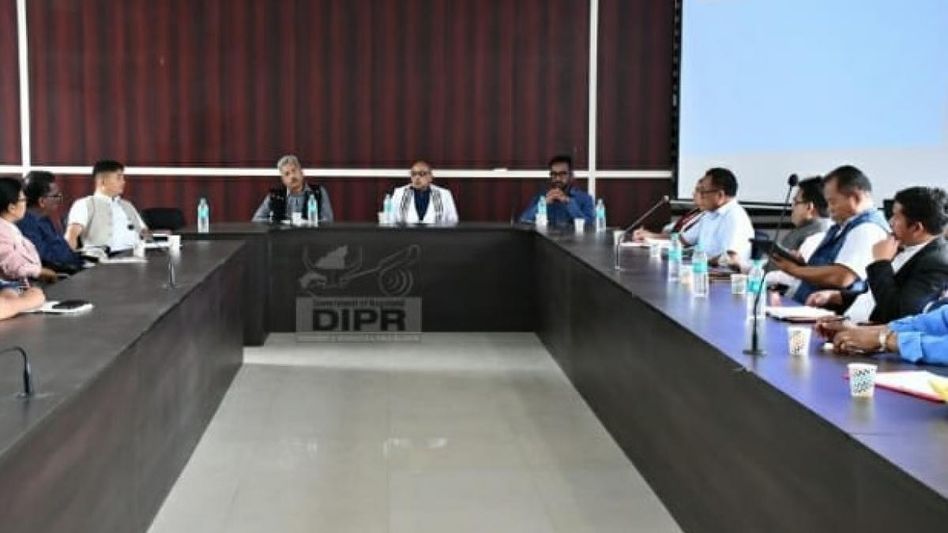Nagaland: National minority commission provides grievance redressal for minority educational institutions
Highlighting the significance of the NCMEI Act, Justice Kumar emphasized that it was enacted to safeguard the educational rights of minorities as enshrined in Article 30(1) of the Constitution.
 Nagaland: National minority commission provides grievance redressal for minority educational institutions
Nagaland: National minority commission provides grievance redressal for minority educational institutionsJustice Narendra Kumar, Chairman of the National Commission for Minority Educational Institutions (NCMEI), announced that minority educational institutions now have the option to approach the NCMEI for the redressal of grievances. The commission will provide support in obtaining the minority status certificate (MSC), addressing disputes related to affiliation and deprivation, and resolving violations of the rights of minorities to establish and administer institutions of their choice.
Justice Kumar made this announcement during a meeting held in Kohima, where he engaged with stakeholders from minority educational institutions and various minority communities. He emphasized that institutions facing rejection of their no objection certificate (Section 12A) application by state/UT authorities or refusal to grant the MSC can appeal to the commission against such orders. Additionally, the NCMEI has exclusive authority to cancel the minority status granted by other authorities or commissions, based on grounds outlined in the NCMEI Act.
Highlighting the significance of the NCMEI Act, Justice Kumar emphasized that it was enacted to safeguard the educational rights of minorities as enshrined in Article 30(1) of the Constitution. The act empowers the commission to serve as an appellate authority in disputes related to minority status and no objection certificates.
Addressing the issue of defining "minority" within the Indian Constitution, Justice Kumar explained that while the term itself is not explicitly defined, the Constitution recognizes religious and linguistic minorities. The central government has officially identified Muslims, Christians, Sikhs, Buddhists, Parsis, and Jains as the six religious minority communities in India.
Justice Kumar also touched upon challenges faced by minorities in the educational sector, emphasizing the government's policies concerning minority education. He stressed that children should not only acquire knowledge but also learn how to learn. Article 30(1) of the Constitution provides linguistic and religious minorities with the fundamental right to establish and administer educational institutions of their choice.
Drawing attention to the National Education Policy (NEP) 2020, Justice Kumar highlighted its importance in realizing the full potential of individuals and the development of an equitable society. He stated that universal access to quality education is crucial for India's growth, social justice, scientific advancement, national integration, and cultural preservation. The NEP 2020, which addresses various developmental imperatives, aims to revamp the education system to align it with the goals of 21st-century education while preserving India's traditions and values.
Justice Kumar concluded by affirming that the NEP 2020 is the first education policy of the 21st century, serving as a blueprint for India's educational advancement. It proposes comprehensive revisions to the education structure, including regulations and governance, with the aim of creating a new system that aligns with 21st-century aspirations and Sustainable Development Goal 4, while upholding India's rich traditions and values.
Copyright©2025 Living Media India Limited. For reprint rights: Syndications Today









